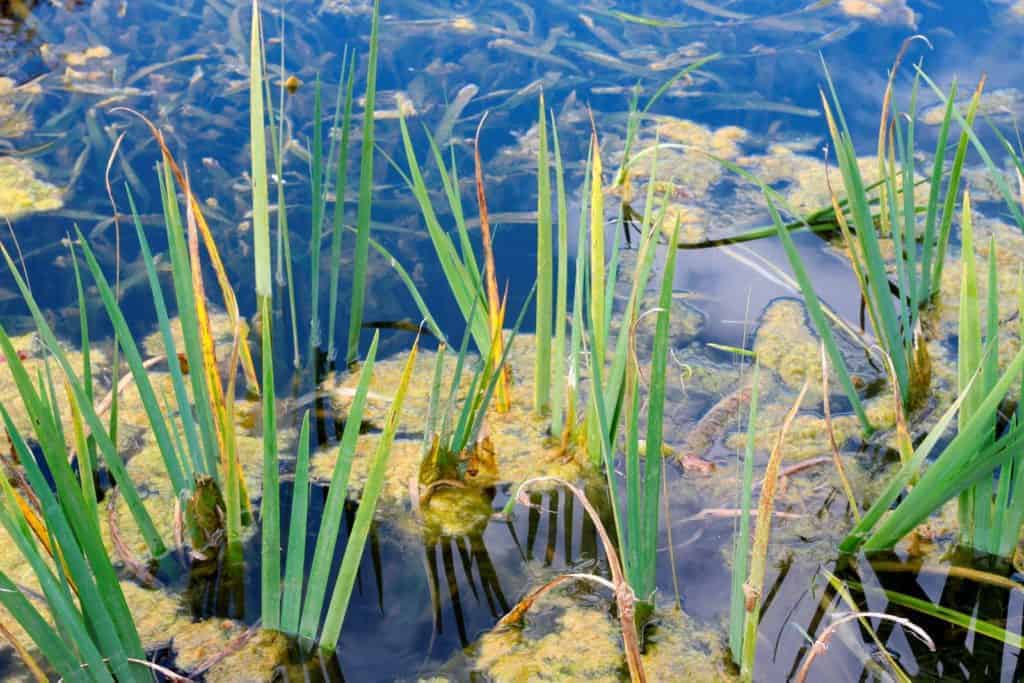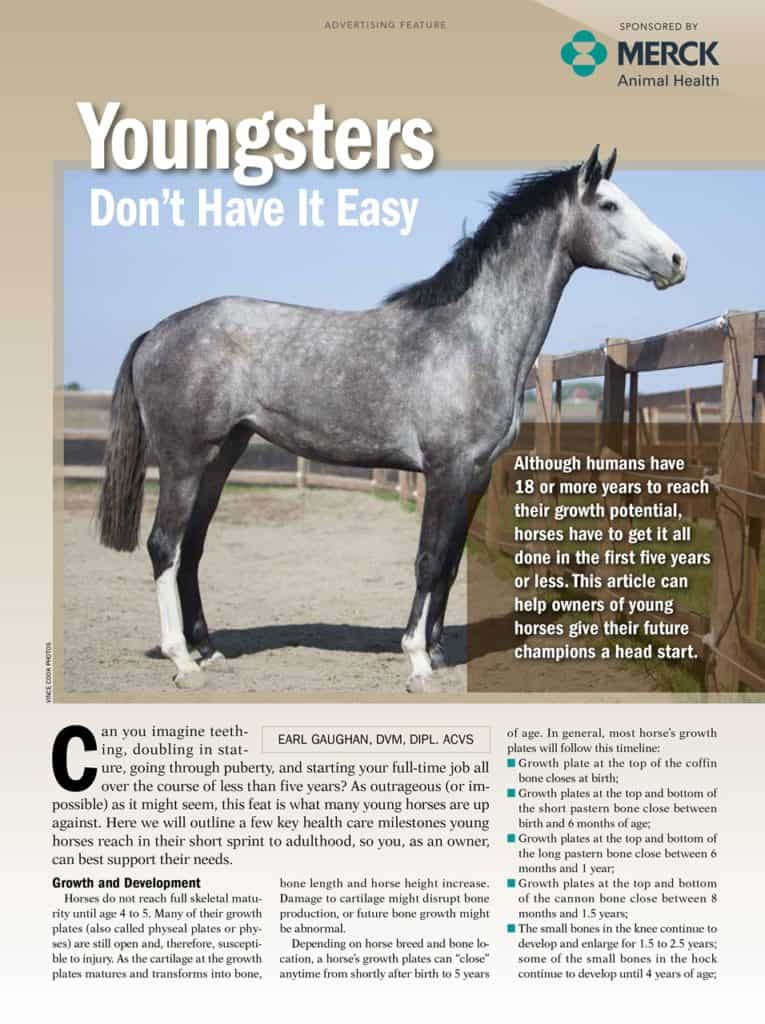
Infographic: Botulism
The toxins that cause this potentially fatal neurologic disease could be lurking in your horse’s environment or hay. Learn how to recognize and prevent botulism with this visual guide.
Proper feeding practices for foals, adult horses, and older horses

The toxins that cause this potentially fatal neurologic disease could be lurking in your horse’s environment or hay. Learn how to recognize and prevent botulism with this visual guide.

Learn about caring for the health of adult show and recreational horses.

Fodder is plant material grown hydroponically and harvested as livestock feed. Find out if it’s a good forage source for horses as well.

Many animals that ingest blue-green algae toxins die suddenly, but some can recover.

Whether you’re heading south for a winter show circuit or relocating permanently, preparation is key.

Now is the optimal time for Kentucky forage producers to cut hay to ensure they get good quality and yield.

These harmful toxins produced by molds and fungi could be lurking in your horse’s feed and forage.

Are you confused about equine nutrition? Learn how to feed your horse in our step-by-step visual guide.

Give your youngster a strong start to a lifetime of health with information from this in-depth special report about horses age 1 to 3 years old. Learn about deworming, dental care, bone disease, hoof care, and more.

Learn the risks of equine metabolic syndrome (EMS) and get management and treatment tips in this easy-to-follow visual guide.

The future of feeding horses is here: Learn how diet can impact your horse right down to his genetic core.

There are many issues to consider when you’re planning to transport your horse, especially if he’s moving to a hot and humid climate. Here’s what to to consider, from new feed options to a risk of hyperthermia.

The most common way adult horses contract the disease is by eating feed, such as hay or grain, that contains animal remains.

Download and print these feed and turnout information cards for your horse’s stall or barn!

Blister Beetles naturally contain and secrete a chemical substance called cantharidin, which is extremely toxic to horses. Dr. Sarah Reuss lists the dangers of blister beetles and what horse owners can do to prevent their horse from ingesting them.

Not all fats or fatty acids are created equal; some are more beneficial than others for horses.
Stay on top of the most recent Horse Health news with
"*" indicates required fields